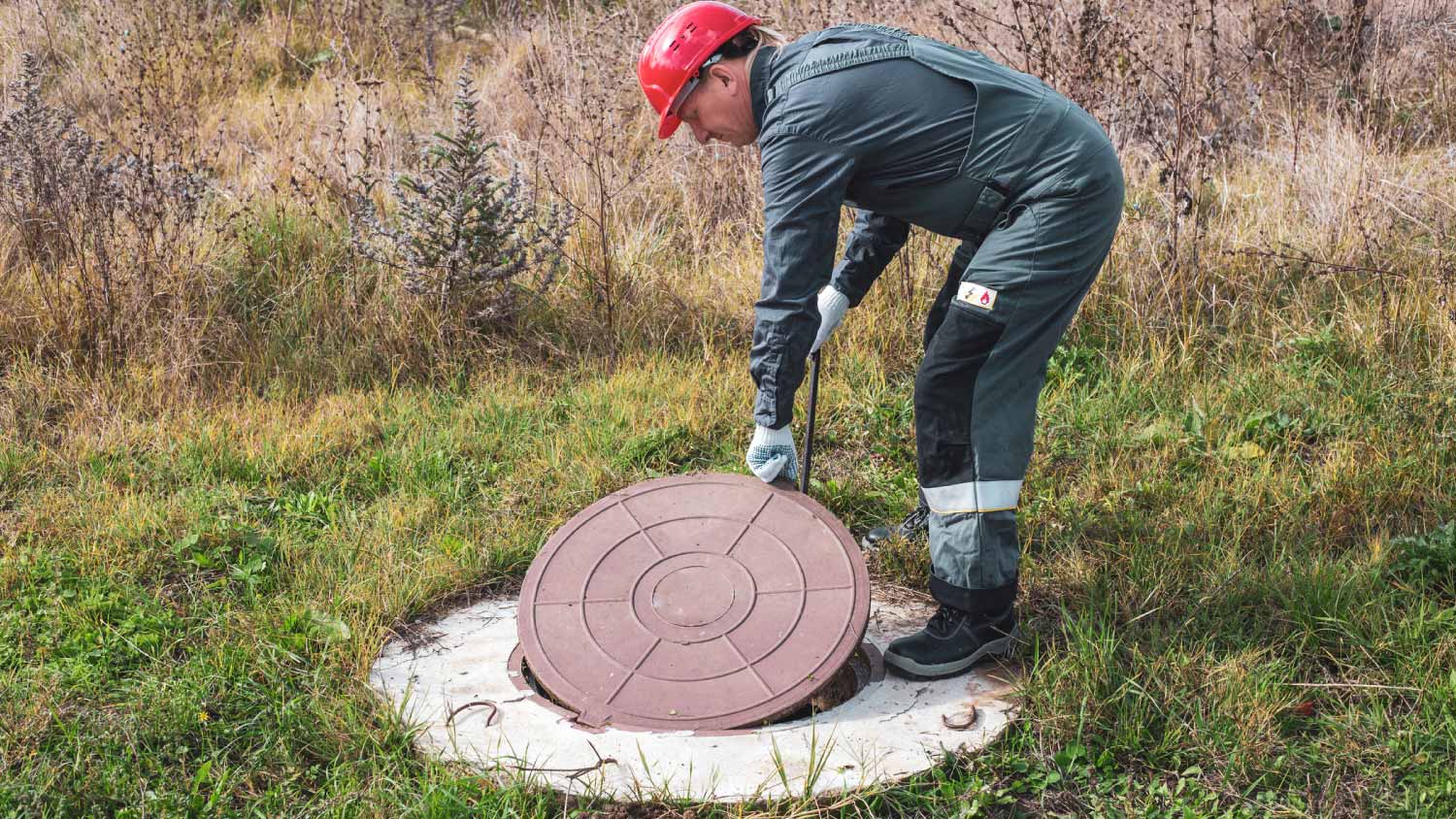
Need to know what sewer line replacement costs in New York, NY? This guide will help you prepare to budget for sewer line replacement done by local contractors.
Discover what lies beneath the soil


Septic tanks treat wastewater and are common in rural areas without sewer systems.
Septic system installation costs an average of $8,000.
Regular maintenance, like pumping sludge, ensures proper septic function.
Avoid overusing water and flushing harmful chemicals to prevent issues.
Knowing your home inside and out is a great way to stay on top of maintenance needs and keep your property safe. Unfortunately, some key functions in your home are managed by systems you can’t see. Which is why you may be wondering—how do you know if you have a septic tank? Learn some telltale signs that your home’s wastewater relies on a septic tank.

A septic tank is an underground wastewater treatment system more commonly found in rural or off-grid areas where municipal sewer systems are unavailable.
The septic tank is a vital component of your home. It collects, treats, and disposes of household wastewater from sinks, toilets, and showers. It works by separating solids from liquids and allowing bacteria to break down organic matter.
When wastewater enters the tank, heavier solids settle at the bottom, forming sludge, while lighter materials like grease and oils float to the top as scum. The middle layer, consisting of partially treated liquid, known as effluent, flows into a drain field or leach field, where it is further filtered by the soil before re-entering the groundwater system.
The cost of installing a septic system often ranges from $3,615 to $12,400, with a national average of $8,000. Several factors influence the total cost, including the materials used, the labor involved in installation, and the expense of excavating a leach field on your property.
"Effluent" is the term for liquid waste or sewage that has been treated in a septic tank or sewage treatment plant. You may also know it as "wastewater."
If your home is in a rural or suburban area without access to a municipal sewer system, you likely have a septic tank. Signs of a septic system include outdoor tanks or lids, often near the house or in the yard, and a drain field or leach field where wastewater is dispersed. If you're unsure, a plumber, septic service, or local health department can help determine whether your property has a septic tank.
If you’re struggling to figure out if your home has a septic tank or not, the secret may be hiding in your water bill. If you don’t find a sewer charge, that tends to indicate your home isn’t connected to a municipal sewer line. This means you likely have a septic tank to treat your home’s wastewater. You can also check your property records, and your home deed should have this information. But you can also contact your local health department or planning office to see if they have any records about your home’s septic system.
You also have the option to walk through your property and look for a septic tank. Oftentimes, you can spot the septic tank lid in the yard. Look for a small cover or concrete slab covering.
A septic tank is a large, rectangular, or cylindrical container often made of concrete, fiberglass, or plastic. It is buried underground, with only a small portion of the tank and access ports visible above the ground, often marked by a small inspection cover. The tank’s size varies depending on the number of occupants in the home, with most residential tanks holding between 500 and 1,500 gallons of wastewater.
Above the ground, you’ll often find an inspection port or manhole, which allows for periodic maintenance like pumping out sludge. These openings are often covered with a concrete lid, metal cover, or plastic cap. The tank itself remains hidden beneath the surface to protect it from weather and other external factors.
To access your septic tank, you’ll need a septic tank professional near you with experience in septic system maintenance or installation. Here are the key professionals who can help:
Septic tank pumping service: These specialists know how to locate your septic tank, remove access covers, and pump out accumulated sludge. They can also inspect your system for issues, such as leaks or damage.
Septic system inspectors: These professionals can thoroughly assess your septic system, check for compliance with local regulations, and ensure that all components are functioning properly. They often handle inspections when you buy or sell a home.
Septic installers: If you need a new septic system or a major repair, septic installers can handle the digging, installation, and maintenance of your system, including accessing and servicing the tank.

One reason some homebuyers shy away from homes with septic tanks is that they require greater maintenance than a more modern plumbing system. Failure to care for the system can lead to groundwater contamination, costly repairs, and health hazards.
One of the primary tasks is pumping out accumulated sludge every three to five years. Over time, solids from wastewater accumulate in the tank, and if not removed, this sludge can build up and block the system, leading to unpleasant backups and costly septic repairs.
It’s also important to avoid excessive water use. High water volume strains the septic system, overwhelming its ability to treat and filter wastewater effectively. Installing water-saving fixtures and being mindful of water usage, like not running multiple appliances at once, helps prevent system overloads.
You should also avoid flushing and putting household cleaners, pesticides, paints, and solvents down the sink. Avoid planting large trees or shrubs near the tank or drain field, as their roots can invade the system, causing blockages and damage.
From average costs to expert advice, get all the answers you need to get your job done.

Need to know what sewer line replacement costs in New York, NY? This guide will help you prepare to budget for sewer line replacement done by local contractors.

Roto-Rooter plumbing services can help you unclog drains, fix leaks, or provide remediation services after a flood. Learn the average cost to hire a local specialist and how they can help you.

The average cost to connect to a public sewer line can vary depending on the linear foot, piping material, local regulations, and more.

A clogged septic tank can wreak havoc on your home and property. Learn how to unclog a septic tank yourself and know when to call in the pros.

Need to know what sewer line replacement costs in Denver, CO? This guide will help you prepare to budget for sewer line replacement done by local contractors.

Knowing your septic tank’s location can help you prepare for maintenance, renovations, and more. For tips on how to find a septic tank, check out this guide.